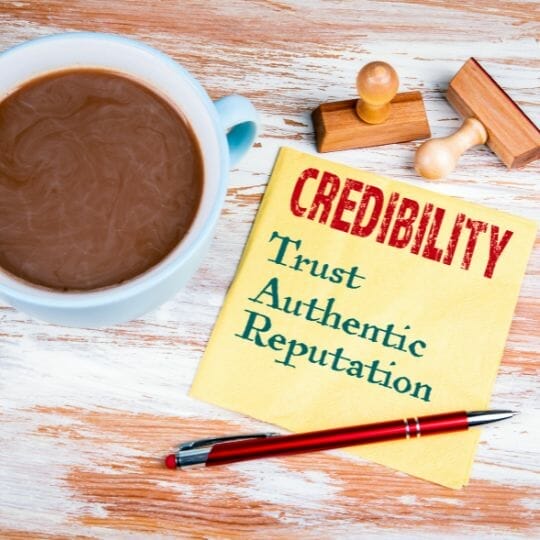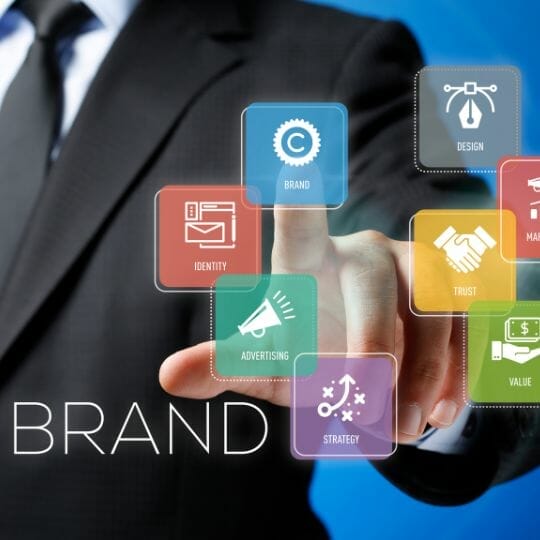
Are you finding it difficult to gain credibility with other health professionals? Are they confused about what you do, or facing lots of questions about your qualifications? Today I’ll outline six ways you can boost your professional credibility so that people understand what you do and have trust and confidence in your qualifications, training, skill set and capabilities.
I wanted to create this episode today because I’ve had two conversations recently that really got me fired up.
In one conversation, a recent graduate who is out marketing her services said she’d been constantly questioned by professionals about her qualifications – not by potential clients – but by health professionals.
In the other conversation, a seasoned coach is starting a degree, following what I would call professional bullying – being told by a health professional that she isn’t qualified enough to have enough expertise in wellness, and needs to do higher education.
After I got up from pounding my fists on the floor, I decided to develop this episode to help you to understand why these sorts of things happen, and what you can do about it.
To set the scene, let’s define professional credibility.
It can be simply defined as your education, experience, performance and demonstrated professional development in a particular field.
This definition gives some clues about what it takes to be a credible professional who is trusted and respected. Let’s dig a bit deeper.
According to an article in the Organisational Behaviour in Health Care book series, “…professional credibility is a source of legitimacy.” The chapter says that when professional credibility is combined with leadership, you can create respect and trust by peers, and engagement with followers.
So, when people question your qualifications or professionalism, they are looking for evidence that you’re trustworthy, capable, and skilled.

In a healthcare setting, it’s understandable that people might question anyone’s professional credibility because you may be dealing with people in health-critical or life-critical situations, complex medical or psychological conditions, and other professionals with significant experience in patient care and medical systems.
Somebody showing up with a coaching qualification may not fit into their paradigm.
In Australia, Health and Wellness Coaching is a relatively young profession and people don’t understand what it is or how it fits with existing medical frameworks, or within health professions.
Part of the challenge is the range of untrained and inexperienced people giving themselves coaching-related titles and offering services that are clearly not coaching-related.
Another part of the challenge is the diversity of coaching professions around – you can be a life coach, a wellness coach, a health and wellness coach, a health coach, an executive coach….and so on. What’s the difference? Which is the appropriate setting for each one?
I’ll address these three issues in a moment.
But to finish up this section of today’s topic, I wanted to say that there is something of a turf war going on in Australia. I have heard of this first-hand from a psychologist a few years ago, who told me that psychologists, psychotherapists and counsellors are fighting about who is credentialled enough for what.
Let me ease your mind a bit by saying that professional skills are important, our profession definitely needs some good promotion and PR, and our scope of practice needs to be clear, but please also know that human ego and professional bullying exist and is potentially always going to be there, no matter how well known, recognised and accepted our profession is.
In fact, the reason I left my previous career as a biological scientist is that I was sick of all the egotism, barrow-pushing and bullying that was going on in my industry back then. I wasn’t personally affected but I was disheartened by the behaviour, generally.
That said, there are things going on that you can do to move past the questions and to gain the credibility and respect you deserve.
Let’s look at 6 ways you can start boosting your professional credibility.
HCANZA – Look for the Logo
If you’re a regular listener of this podcast, you might remember an episode I did in May 2022 called How to boost your professional credibility. This episode was about showcasing the health coaching profession at the inaugural conference of our industry association, Health Coaches Australia and New Zealand Association (HCANZA), and how attending could give you ideas on how to communicate what health coaches do, and what our profession is achieving.

As a current board member of HCANZA, I can say that HCANZA is working hard in the advocacy of our profession at the highest levels of government, insurance and medical sector in Australia and New Zealand. HCANZA serves multiple purposes, including building the knowledge, understanding and reputation of health coaching in Australia and New Zealand. We are running a Look for the Logo campaign that educates the public and health professionals on how to choose an appropriately qualified health and wellness coach.
If you are a member of HCANZA, then you have access to resources to help you also advocate for our profession, and to promote yourself in a professional way. Hot off the press, HCANZA members now have access to a 25-page booklet called The Doctors Guide to Health Coaching, authored by Sandra Sheinbaum from the Institute of Functional Medicine and provided to HCANZA members for the purpose of awareness-building, advocacy and promotion of our profession.
If you’re a current member, this would have been sent to you by email and it’s available in the member toolkit. The document has been sent to 2,000 doctors in this past week.
Professional branding
Whether we like it or not, first impressions count.
That means that any imagery, documents, flyers, email footers, social media pages, websites etc that you have need to look professional.
Professional branding can cost as little as $200 or up to $15,000 but before you leap in, you need to work out your target market and ideal customer and get to know them intimately.
Why? Because your branding colours and styles need to appeal to your specific demographic, psychographic and desired feelings.

Before tackling branding formally, when you are getting started, at least develop a professional-looking email signature and a formal LinkedIn profile with a professional headshot and a well-written bio on it.
Mentioning your qualifications, training and HCANZA membership is valuable for your professional standing and to raise awareness of our industry association.
Your main goal initially is to have consistent visuals and messaging across any promotional material. If you start with LinkedIn and an email footer, and any other online presence, they should all look similar, use the same fonts, and have the same feel about them. If you are an HCANZA Professional member, log into your account and look inside your member toolkit for tips on creating a professional bio, getting noticed on LinkedIn, where to use your HCANZA logo, and crafting an elevator pitch (who you work with and the general area – e.g. I help professional women in their 40’s who are struggling with menopause). We also have an HCANZA-badged brochure that talks about the benefits of working with an HCANZA-accredited coach.
A clear value proposition
When you can clearly and confidently describe who you work with (elevator pitch) and how you help your niche (value proposition), it lends credibility and professionalism – and legitimacy.
A value proposition describes the tangible results someone will get from using your products or services. I did an episode unpacking how to do this recently using a tool called a Brand Ladder, which you can listen to, here.
A value proposition might be longer than an elevator pitch and speak more specifically to the tangible results. For example, compared to the elevator pitch I just mentioned, a related value proposition might be something like this:
“I use an evidence-based methodology to help menopausal women to become aware of what impacts their menopausal symptoms, and to develop health-giving routines to help them reduce their symptoms naturally and feel healthy, productive, energized and calm”.
When you can clearly explain how you help people, they see the value in working with you.
It’s clear that you know what you’re talking about, and that you are confident in what you do and how it helps people.
Endorsement
Personal or professional endorsements are great ways to build credibility. If someone else likes and trusts you, and if you have proven success, this builds your legitimacy as a coach.
Endorsement can take on various forms, such as:
Even as a new coach, you can cover at least some of these.
Professional networking
While networking itself isn’t necessarily credibility building, the act of consistently showing up in professional networking spaces creates visibility and recognition and helps you to build relationships with like-minded people who can become your allies and advocates.
For example, when I started my weight loss coaching business, I made an effort to send introductory letters to prominent health professionals in my area and meet several of them for coffee afterwards.
I also attended various events and presentations in my local area such as Medicare presentations, health expos and health practitioner lunches, where I could leverage those initial contacts and become known in the area.
Also, I started my business by running a pilot program that involved my clients seeing their doctors or health professionals for a health clearance before starting. This gave those professionals firsthand experience in the success of my coaching program, and therefore professional endorsement and recognition.
In the end, GPs and podiatrists, chiropractors and diabetes educators were referring people to me for weight loss, having seen improvement in my clients’ weight, BMI, blood pressure, insulin, etc.
You can do this in your local area (four or five surrounding suburbs) or the nearest health hub.
Publishing and speaking
Finally, being published in online articles, interviewed on the radio or podcasts, and published in print newspapers or magazines, all give you visibility and credibility.
After all, nobody will publish you or interview you if you’re not credible.
While this is a marketing activity, it also gives you a chance to be seen, heard and known by different audiences, so they can validly assess (in their own minds) how professional you are.
Today we talked about the challenges we face in being recognised as credible professionals. The truth is, no matter how experienced and qualified you are, someone will always take a shot at you or doubt your credentials.
That aside, there are six things you can do to boost your professional credibility right now:
Understanding who you are and what you need will allow your business to thrive! If you’re truly ready to break old habits and get out of the rut I encourage you to check out the Habitology membership.
Learn more here:
© 2024 Melanie White